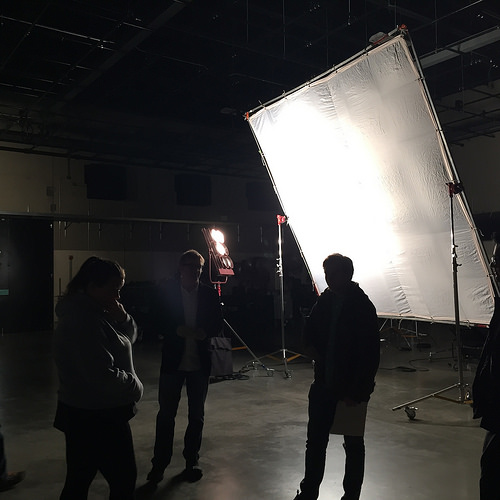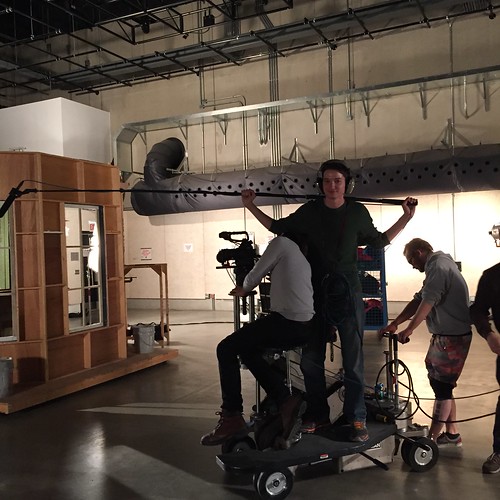
Directing Workshops = Mentoring

Directing Workshop @ The MPC with Professor David Tarleton
Four Saturday’s of the spring semester are dedicated to Directing Workshops, which go hand in hand with my Directing for Drama course (the second installment of my directing education at CCC). From 8AM to 6PM on these Saturdays, the directing students gather at Stage 1 in the MPC (AKA the Media Production Center) for a day of practical, hands on learning. But what exactly is a Directing Workshop? Our professor, David Tarleton, uses the workshop as not merely a learning experience, but as an opportunity to mentor us. Inspired by the industry’s Apprenticeship programs, the Directing Workshops aren’t just about sitting back and watching a film set run, but are about being directly involved in the process, and having an ally (David Tarleton) to pass along his knowledge and professional experience.
The day began with a two page script, which we table read initially, followed by a collaborative breakdown of the script. This particular version of the script breakdown, which Tarleton learned from the legendary Nina Foch, highlights each and every beat (or decision) that each character goes through. By focusing on the beats, and studying the beats before getting to set, a Director is prepared to coach the actors through a scene. Each line of dialogue and each action have a separate beat, which the class came together and found. After we broke down the script, the casted actors arrived and we did a read with them, followed by a very basic blocking exercise.
Throughout the breakdown and blocking, Tarleton continuously illuminated points of interest and questioned our decisions. This was welcome, because it made the class think about why a character was doing what at any given moment, which then led to the Director knowing the script inside and out, no questions asked. Tarleton stressed that knowing what you want before you get on set is crucial. Understanding the script as thoroughly as possible will then dictate all the choices you make once you are on set. These decisions include (though not limited to) actor performance, set decoration, and composition of shots.
What followed was the set decoration and lighting, which the class was directly involved in. While we did have a crew, we were helping hands throughout the entire day. This workshop was about learning through experience and exposure, and not just through watching.

Directing student Justin working the boom for the shoot
Once filming got underway, we were able to watch Tarleton as he called the shots. His created the shot list for the day and worked directly with our Director of Photography to create the mood and tone he was looking for. In between takes, he would pause in his work to expound upon why he made certain decisions, or why he directed the actors in a certain way. Because this was a day of being mentored, he even asked our opinions.

Professor David Tarleton standing in video village
Because of Tarleton’s experience in the industry and as an independent filmmaker, he was able to provide firsthand accounts of how he goes about shooting a scene. Learning techniques in a classroom is valuable, but being able to work underneath an experienced filmmaker, listen to his method, and actually get to help was an irreplaceable experience.
